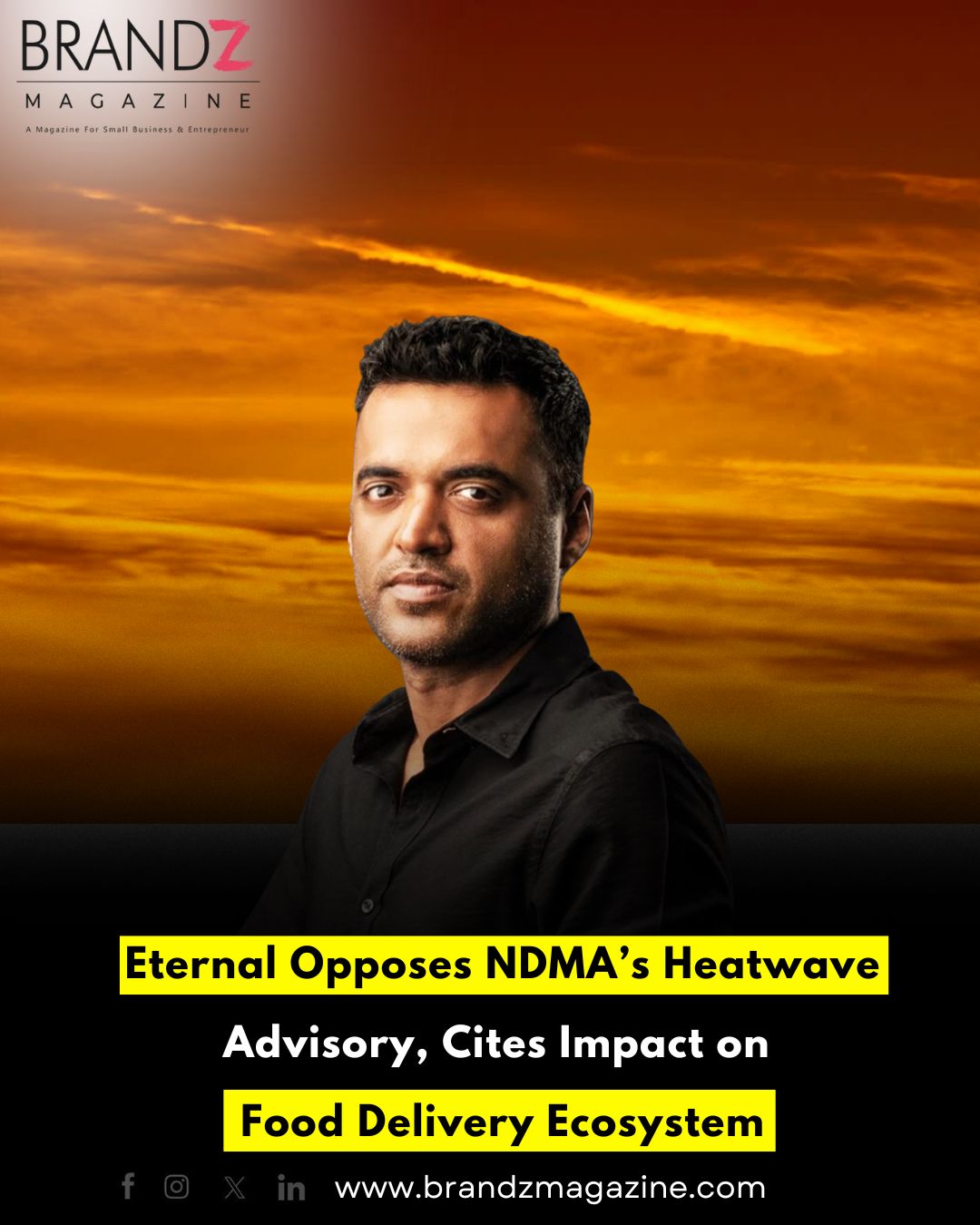
India’s foodtech giant Eternal has reportedly raised concerns over the National Disaster Management Authority’s (NDMA) recent advisory, which recommends suspending gig platform operations between 11 AM and 4 PM during heatwave or rain-related alerts issued by the India Meteorological Department (IMD). Eternal, one of the country’s largest food delivery platforms, argues that the advisory, though well-intentioned, could severely affect the livelihood of gig workers and impact business for restaurants and delivery partners alike.
Table of Contents
ToggleAccording to a report by Mint, an Eternal spokesperson stated, “The 11 AM and 4 PM window is a peak period for food delivery, and mandating a shutdown during this time would significantly affect the earnings of both our restaurant and delivery partners. Given this, we have not enforced a platform-wide pause.”
The hours between late morning and mid-afternoon are critical for foodtech platforms, as they include lunch delivery hours, a key revenue-generating period for the entire food delivery ecosystem. Eternal believes that enforcing a full suspension of operations during this time could lead to an estimated 25-35% loss in daily orders, which would in turn affect platform revenue, restaurant sales, and most importantly, the earnings of delivery partners who rely on high-demand hours for incentives and bonuses.
While Eternal has not mandated a complete pause, the company claims to be taking proactive measures to ensure delivery partner safety. These include:
The foodtech firm has emphasized the importance of balancing safety with livelihood, especially in a country where a large portion of gig workers depend on daily earnings to sustain themselves and their families.
The NDMA’s advisory comes amid rising concerns over climate-induced health risks, with extreme heatwaves and torrential rains becoming more frequent across Indian cities. The advisory aims to reduce exposure-related health risks such as heatstroke, dehydration, and accidents caused by waterlogging or poor visibility.
While the directive is non-binding, it has sparked a wider debate on how platforms like Eternal, Zomato, and Swiggy should navigate climate resilience and worker welfare without disrupting economic activity.
If more platforms follow NDMA’s advisory, the food delivery sector could face widespread operational challenges during seasonal extremes. Smaller restaurants that rely heavily on lunch-hour orders and daily footfall via online platforms may experience serious revenue dips. On the flip side, failure to implement safety-centric policies may invite public backlash or regulatory scrutiny.
Eternal’s stance underscores the complex balancing act between worker safety and economic continuity in India’s booming gig economy. As climate change continues to challenge traditional business operations, tech platforms may need to innovate with flexible delivery windows, incentives for early or late shifts, and technology-driven safety features to stay both profitable and responsible.
The issue is likely to gain further traction as policymakers, platforms, and worker unions look for common ground in a climate-sensitive digital economy.
Ask ChatGPT

